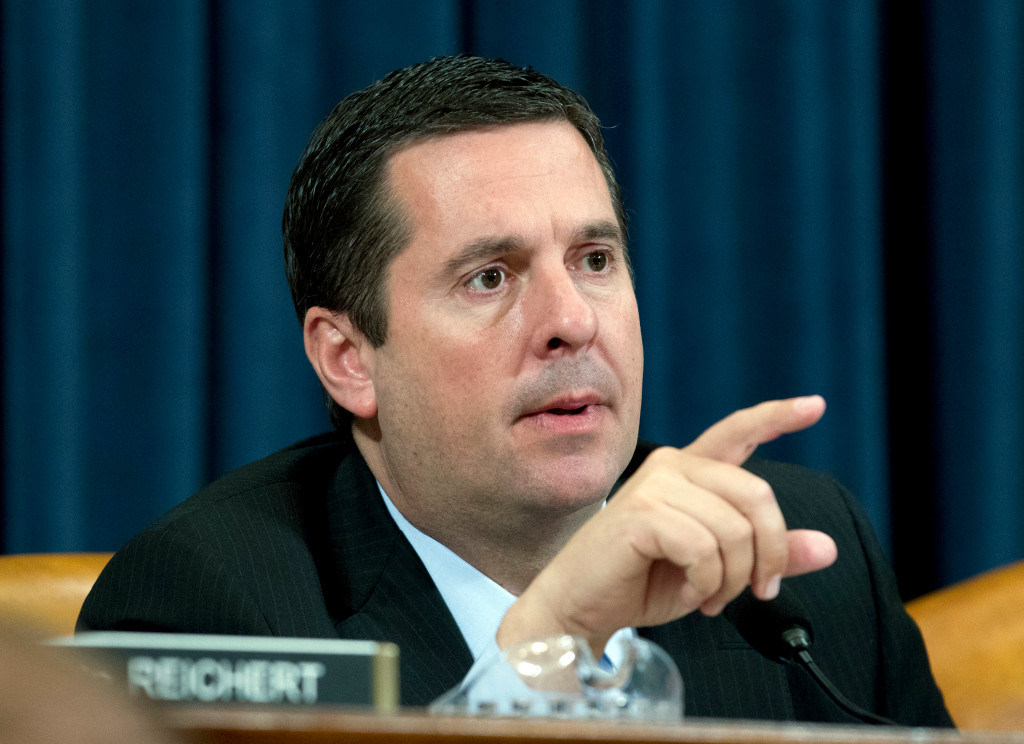Based on a lawsuit he filed, Rep. Devin Nunes thinks he has a problem with Twitter. But it’s not really with Twitter. It’s that he’s a public official, which subjects him to criticism, parody and even ridicule. Nevertheless, he’s suing Twitter for $250 million for “knowingly hosting and monetizing content that is clearly abusive, hateful and defamatory” and for “shadow banning conservatives,” including himself.
Shadow banning is the practice of allowing people to post, but making it difficult or impossible for others to see it. There is no evidence that Twitter or any major social media company does that. There was a brief moment when a bug prevented some posts from showing up in search, but that bug was fixed, and in September, Twitter CEO Jack Dorsey apologized, admitting that “algorithms were unfairly filtering 600,000 accounts, including some members of Congress, from our search auto-complete and latest results. We fixed it.”
If Twitter and Facebook are discriminating against conservatives, they’re not doing it very well. There are millions of conservatives effectively using these platforms to promote their views, including @DevinNunes, who has nearly 395,000 followers and more than 2,000 tweets to his name.
The irony of Nunes’ lawsuit is that it has drawn enormous attention to the negative tweets about him. One of the defendants in the case, identified only as “Devin Nunes Cow” (@DevinCow) only had 1,204 followers when the suit was filed but had 444,000 follows as of noon Wednesday, having grown by about 25,000 from the previous hour. With all the retweets, whoever is behind this account is now reaching millions of Twitter users along with the millions more who are reading or hearing about this case through the media. Twitter is making even more money as a result of Nunes’ complaints.
If Nunes wants to have an impact, he’d be better off using Twitter to promote the issues that are important to his constituency, including the owners and workers at the 200 dairy farms in his home county who work with real cows. And, yes, he’s free to do that, because Twitter doesn’t censor him.
Twitter also doesn’t censor Donald Trump, who has used the service repeatedly for name calling and derogatory comments about political opponents. Trump has likely violated Twitter’s terms of service but a Twitter executive told me he’s a special case, because what the president posts is, by definition, newsworthy. Trump recently accused Facebook of censoring his campaign manager Dan Scavino, but that’s because Scavino was repeatedly posting the same response, making it look to Facebook’s algorithm like it was spam. USA Today reported that Scanivo had apparently used the term “Thank you” repeatedly in response to comments. To a human that’s not spam, but the same thing happened to a friend of mine after repeatedly thanking people for birthday wishes. My friend’s polite but repeated response to birthday wishes that triggered the same algorithm, had nothing to do with politics.
In meantime, the family of another politician, the late Senator John McCain, is also suffering from ridicule on social media. But rather than a satirical attempt at humor, the Messenger post, reposted by McCain’s widow, Cindy, is threatening and cruel and borders on the obscene. Journalistic standards prevent me from posting the Tweet, but in addition to calling the late senator a “traitorous warmonger,” it said “I’m glad he’s dead,” and also insulted the appearance of McCain’s daughter Meghan, hoping she “chokes to death.” The message came days after President Trump tweeted derogatory comments about Senator McCain.Everyone, including POTUS, is entitled to their opinion about any person living or dead, but to insult a war-hero months after he died is neither smart nor presidential.
There is a lesson for the rest of us when a Congressman brings more attention to demeaning Tweets about him through a silly lawsuit and a president uses the same platform to demean others. We can do better. Even if some of our leaders aren’t capable of restraint, the rest of us are. If you’re tempted to say something mean about someone online, go ahead and write it but send it to yourself as an email, wait a day and then decide if you really want to stake your reputation behind that utterance. And if someone says something mean about you — don’t feed the bear by drawing more attention to it. Take a deep breath and talk to a friend but, unlike Devin’s call, moove on and don’t udder a word.
Larry Magid is a tech journalist and internet safety activist.










